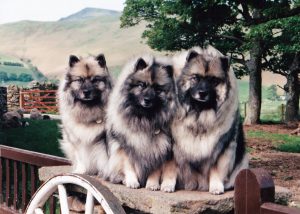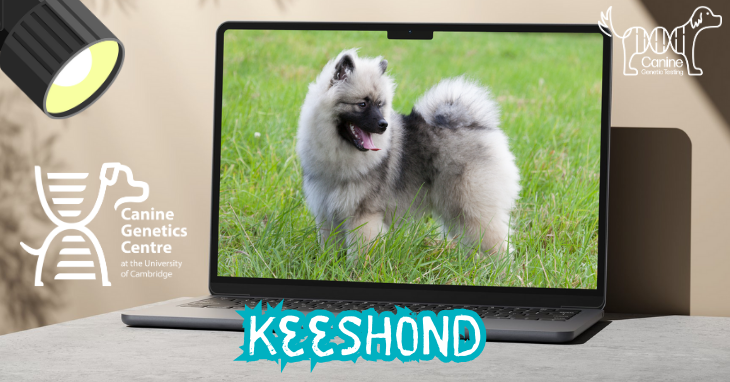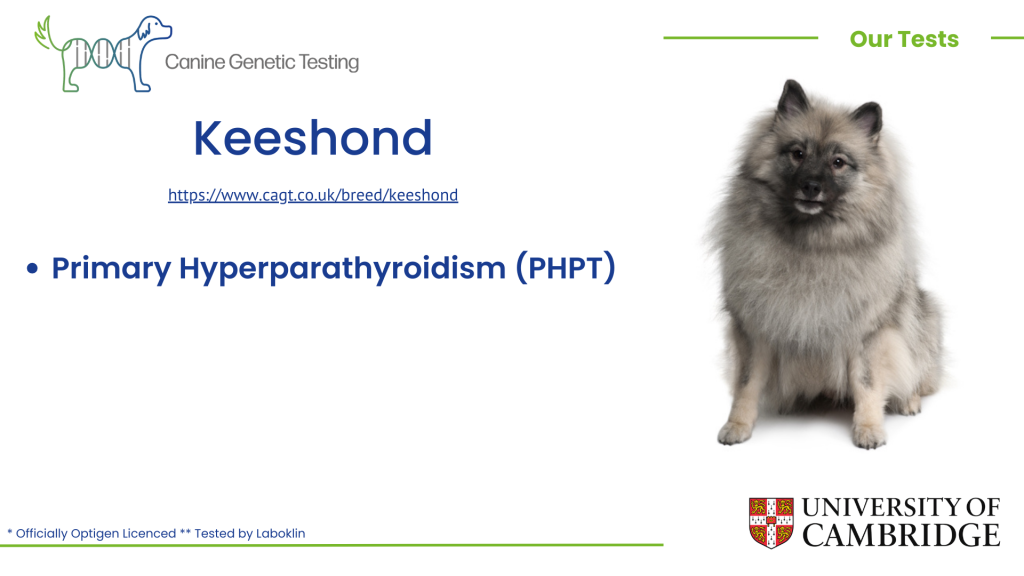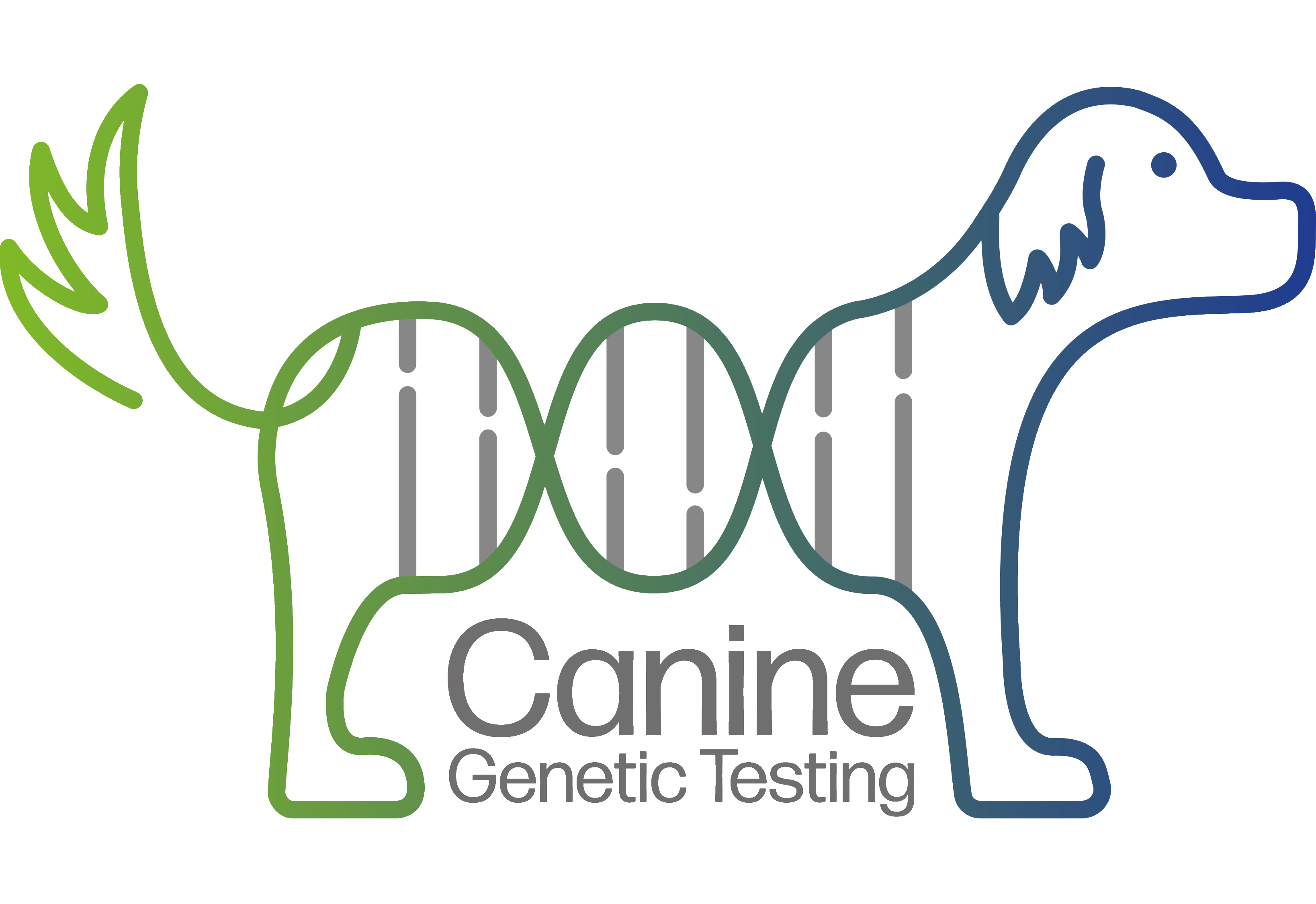At the beginning of March 2025 the Canine Genetics Centre launched a genetic test for primary hyperparathyroidism (PHPT) in Keeshonds. The research underpinning the new test was achieved in collaboration with Professor Claire Wade (University of Sydney), Professor Kerstin Lindblad-Toh (Uppsala University and the Broad Institute), Dr Barbara Skelly (University of Cambridge) and dedicated members of the Keeshond community, without whom the work would not have been possible. The journey to develop a DNA test for PHPT started way back in 2000, with a special dog called Anni, and in for month’s spotlight article Anni’s owner and breeder, Jane Saunders, very kindly tells the story in her own words:
 It was back in 2000 when my 8-year-old home bred girl, Anni started having accidents in the house. Investigations revealed a large kidney stone and numerous stones and gravel in her bladder. At the time we didn’t know anything about the presence of PHPT in the breed and my dear vet, Sue Hiscock, worked tirelessly to solve the problem of recurrent stones. It was only when a urine sample went to Axiom laboratories that the ‘P word’ was mentioned. Dr Andrew Torrance, suggested to Sue that we might be dealing with PHPT, the parathormone test was done and a diagnosis confirmed. Anni was speedily referred to Prof. Mike Herrtage at Cambridge and had her surgery in February 2001. At first all seemed well but we knew the calcium had built up in her other kidney. Over Christmas that year she seemed low, her kidneys suddenly failed, and we had to make the dreadful decision to say goodbye on my birthday. Not a good day. She was only 10. I had written about Anni’s illness in UK Keeshond magazines as I was anxious that no other dogs should die through lack of awareness. Anni’s brother was asymptomatic but tests showed he was also affected and he was referred to Cambridge under the care of Dr Barbara Skelly. A friend’s dog had the same sire and she asked her vet to test him and he too, although asymptomatic ended up needing surgery. Both these dogs lived well into their teens.
It was back in 2000 when my 8-year-old home bred girl, Anni started having accidents in the house. Investigations revealed a large kidney stone and numerous stones and gravel in her bladder. At the time we didn’t know anything about the presence of PHPT in the breed and my dear vet, Sue Hiscock, worked tirelessly to solve the problem of recurrent stones. It was only when a urine sample went to Axiom laboratories that the ‘P word’ was mentioned. Dr Andrew Torrance, suggested to Sue that we might be dealing with PHPT, the parathormone test was done and a diagnosis confirmed. Anni was speedily referred to Prof. Mike Herrtage at Cambridge and had her surgery in February 2001. At first all seemed well but we knew the calcium had built up in her other kidney. Over Christmas that year she seemed low, her kidneys suddenly failed, and we had to make the dreadful decision to say goodbye on my birthday. Not a good day. She was only 10. I had written about Anni’s illness in UK Keeshond magazines as I was anxious that no other dogs should die through lack of awareness. Anni’s brother was asymptomatic but tests showed he was also affected and he was referred to Cambridge under the care of Dr Barbara Skelly. A friend’s dog had the same sire and she asked her vet to test him and he too, although asymptomatic ended up needing surgery. Both these dogs lived well into their teens.
Upon Anni’s death, Mike Herrtage contacted Sue and asked if I could provide a copy of her pedigree. It transpired that a dog treated for PHPT at the Royal Veterinary College was her half-brother. At this stage Mike handed the research to Dr. Barbara Skelly. That was back in 2002, now 23 years later, Barbara is still at the heart of our research
The internet was not as advanced in those days but some searching for references to the disease in the breed and through various academic sites revealed extracts of papers written by Prof E Feldmann at the University of Davis, California. These showed that the condition was first reported back in the 1980’s but the information had not been shared across the pond. In the intervening years American dogs had been imported to the UK and the popular sire effect resulted in one dog siring over 100 progeny.
The UK research commenced with Barbara collecting samples for storage from both affected dogs and any others over the age of 8 years. The North of England Keeshond Club arranged a blood drawing session at one of their Championship shows which produced a good number of samples for storage. Other members had blood drawn by their own vets.
A research grant was successfully applied for from the Kennel Club Charitable Trust and the research started by testing the possibility of the condition being caused by one of the known human candidate genes but these were ruled out. The databank contained nearly 200 samples and was at a point when an analysis could be undertaken when the news came from a conference in the US that Richard Goldstein of Cornell University announced they had found the gene and would be developing a test. Relief was tinged with sadness as Barbara Skelly had worked tirelessly at Cambridge. She contacted Richard Goldstein and he was happy to take our samples as a double-blind trial. This effectively doubled his own sample number. The first results were returned in January 2007 and I was relieved to find that Anni’s litter sister, who I had bred from, was negative for the gene. I had a guardian angel.
The years have passed and with the continued lack of a peer reviewed paper, it was decided to recommence study at Cambridge. The Animal Health Trust’s ‘Give a Dog a Genome’ initiative enabled the two breed clubs to sequence two dogs with Barbara paying for a third to represent PHPT affected dogs. Two dogs, one in the UK and the other in New Zealand set the basic data for future analysis. At this point Cathryn and her team joined the quest for an answer, and Cathryn also started sharing data with Professors Claire Wade and Kerstin Lindblad-Toh, who had worked on PHPT with Richard Goldstein many years ago, prior to his move to Cornell.
In recent years there has been a paucity of known affected dogs and it is only through the commitment and cooperation of friends and Keeshond owners worldwide that we have sourced samples from known affected dogs. This is helped by the positive power of social media and in particular a Keeshond FB group ‘Keeshond Health Today’ with 3,200 members. We have been able to secure several additional samples through this means.
The final chapter started last summer when friends in Scandinavia reported that they had found positive dogs from litters that, according to Cornell testing were negative by descent. The breed community was in shock. How could this happen, was it an error in the testing, or the reporting of the result or were we facing a spontaneous mutation. Thankfully the owners and breeders of the affected dogs threw all they efforts into collecting every possible sample associated with the positive dogs and Bryan McLaughlin at the CGC was kept very busy with emails requesting swab kits.
The longed for news finally arrived on an email from Cathryn at the beginning of February. To say all my birthdays had come at once is an understatement. I was overjoyed. Finally, we have a robust test offered in the UK and one that will be easily accessible by cheek swab to friends and breeders worldwide.
It has been a privilege to work alongside such outstanding and dedicated professions, offering knowledge of pedigrees and contacts around the world to provide valuable samples, pedigrees and case histories.
 The true stars are the professional vets and scientists, Prof Mike Herrtage for his care of Anni and belief in a research programme, Dr Barbara Skelly for her dedication, alongside her busy professional commitments, to stay with us throughout the long 23 years and more recently Cathryn Mellersh, and her team who have made the dream a reality.
The true stars are the professional vets and scientists, Prof Mike Herrtage for his care of Anni and belief in a research programme, Dr Barbara Skelly for her dedication, alongside her busy professional commitments, to stay with us throughout the long 23 years and more recently Cathryn Mellersh, and her team who have made the dream a reality.
A tribute must also go to my dear vet friend Sue Hiscock for not only being an outstanding vet but also a dear friend over so many years. Sadly, Sue died in December 2021. Oh, how I wish she was still here to enjoy this moment, but I know she will be watching and smiling.
The fact that the Keeshond breed is small, only just over 50 registered in 2024, makes the commitment even more precious. This is not just a gift to the UK but the world of keeshond lovers. It goes to prove that even if your breed is small in numbers, with the commitment and support you can move mountains.
The Canine Genetics Centre team would like to thank Jane for writing this article, and for her dedication to this lovely breed.
Primary hyperparathyroidism (PHPT) is an adult-onset disorder of calcium metabolism. Parathyroid hormone, produced by the parathyroid glands, is normally secreted in response to low blood calcium levels. In PHPT affected dogs the parathyroid glands produce too much parathyroid hormone, which leads to the depletion of calcium from bones and hypercalcemia in the blood.
A manuscript is being prepared for publication but in the mean time, the new DNA test is available from Canine Genetic Testing, and we are offering a 20% discount on the PHPT test till the end of the month.




Comments are closed